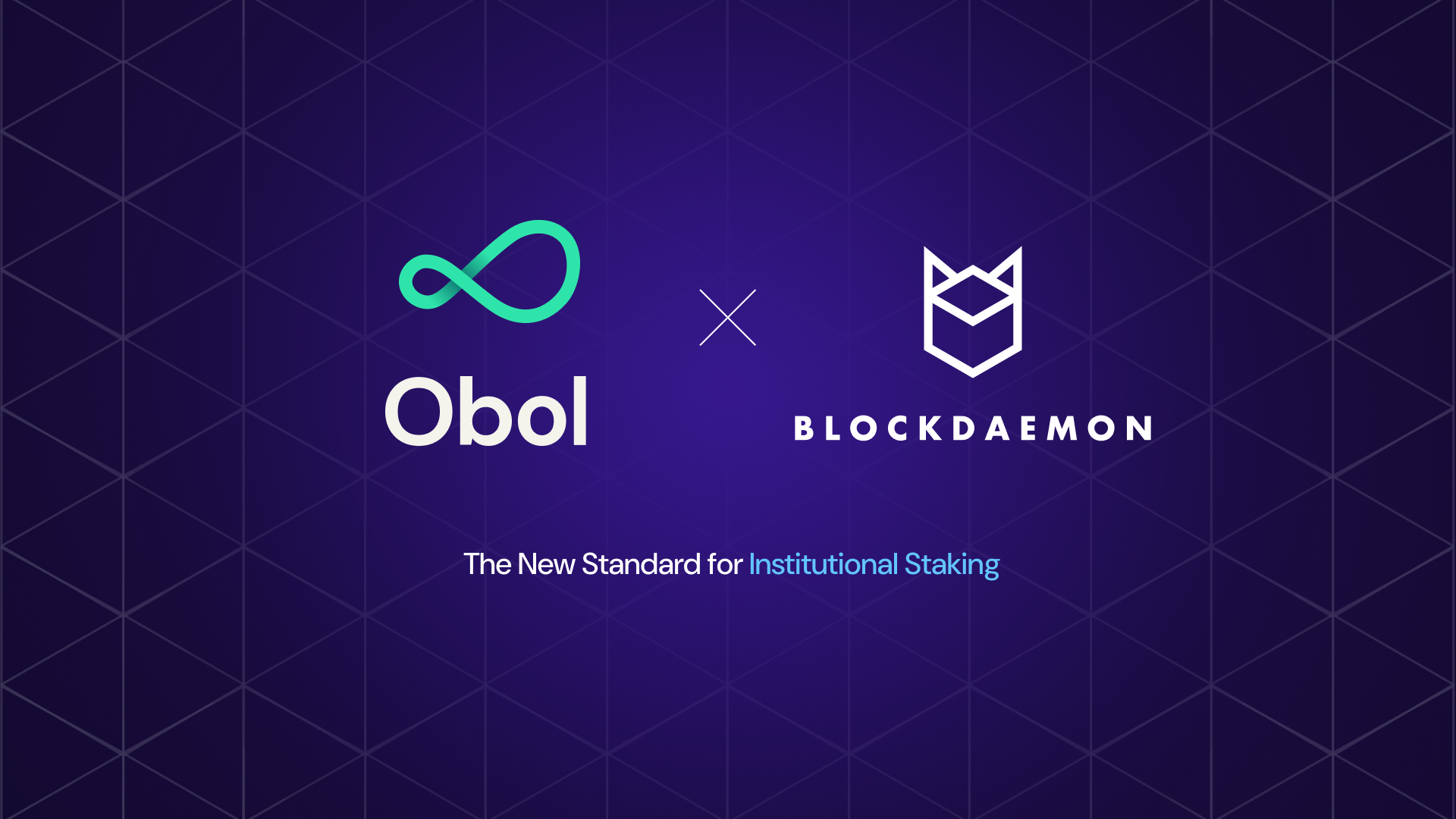Blockdaemon upgrades to Distributed Validators
This upgrade enhances their staking infrastructure with Obol’s high-performance, fault-tolerant, and institution-grade validator technology.

Blockdaemon is a leading Institutional node operator, providing blockchain infrastructure for Staking Providers, Custodians, and Enterprises worldwide.
Blockdaemon and Obol are excited to announce a partnership that will integrate Obol Distributed Validators (DVs) into Blockdaemon's staking infrastructure.
“Obol’s distributed validator technology represents a significant advancement in staking and infrastructure landscape. By prioritizing decentralization and security, Obol effectively tackles some of the most pressing challenges faced by blockchain networks and node operators today. Their unique approach to distributed validators reduces the risk of a single point of failure and ensures that blockchain networks can scale efficiently,” says Demetrios Skalkotos, Chief DeFi and Protocols Officer of Blockdaemon.
Why Blockdaemon Chose Obol
The DV Choice for Institutions
Obol DVs are designed for institutional-grade staking. They remove the need to hold volatile governance tokens and they isolate risk through independent cluster architecture. With no shared networks or token dependencies, operators retain full control of their validator stack. Obol is a founding member of both the Proof of Stake Alliance (POSA) and the Node Operator Risk Standard (NORS), reflecting strong alignment within the evolving regulatory landscape. Partnerships with insurers like Relm and Chainproof further reduce the cost of institutional grade slashing coverage.
Highest Security
Blockdaemon is upgrading its staking infrastructure by implementing Obol DVs - already in production with protocols such as Etherfi. These multi-operator validators improve fault tolerance, security, and decentralization by eliminating single points of failure. At the heart of this setup is Obol's Distributed Key Generation (DKG), which ensures validator keys are never fully assembled, never stored in one place, and never controlled by a single operator. This design protects against external attacks and insider threats, while reducing operational overhead and slashing risks.
Better Performance
In Ethereum staking, performance directly impacts rewards and therefore client trust. Obol's DVs are designed for maximum uptime, effectiveness, and fault tolerance, outperforming traditional setups built on fragile infrastructure. With no single point of failure and seamless upgradeability, Blockdaemon’s validators remain online during routine maintenance, configuration changes, and even outages, maximizing rewards for Blockdaemon partners.
“Institutions demand infrastructure that maximizes security, performance, and best in class risk adjusted returns. Obol Distributed Validators deliver all three, and Blockdaemon’s move to adopt DVs signals a new standard for institutional staking,” says Anthony Bertolino, VP of Ecosystem at DV Labs.
About Obol Collective
The Obol Collective is the leader in institutional grade staking technology and the champion of Distributed Validators. We bring better performance, more rewards, less risks to Ethereum and other decentralized infrastructure networks.
About Blockdaemon
Blockdaemon is the institutional gateway to Web3, securing over $110B in digital assets for 400+ institutions, including exchanges, custodians, crypto platforms, and financial enterprises. We offer institutional-grade blockchain infrastructure spanning nodes, APIs, staking, MPC wallets, and vaults. Since 2017, our globally distributed infrastructure ensures unrivaled security, compliance, and scalability. For more information visit: www.blockdaemon.com